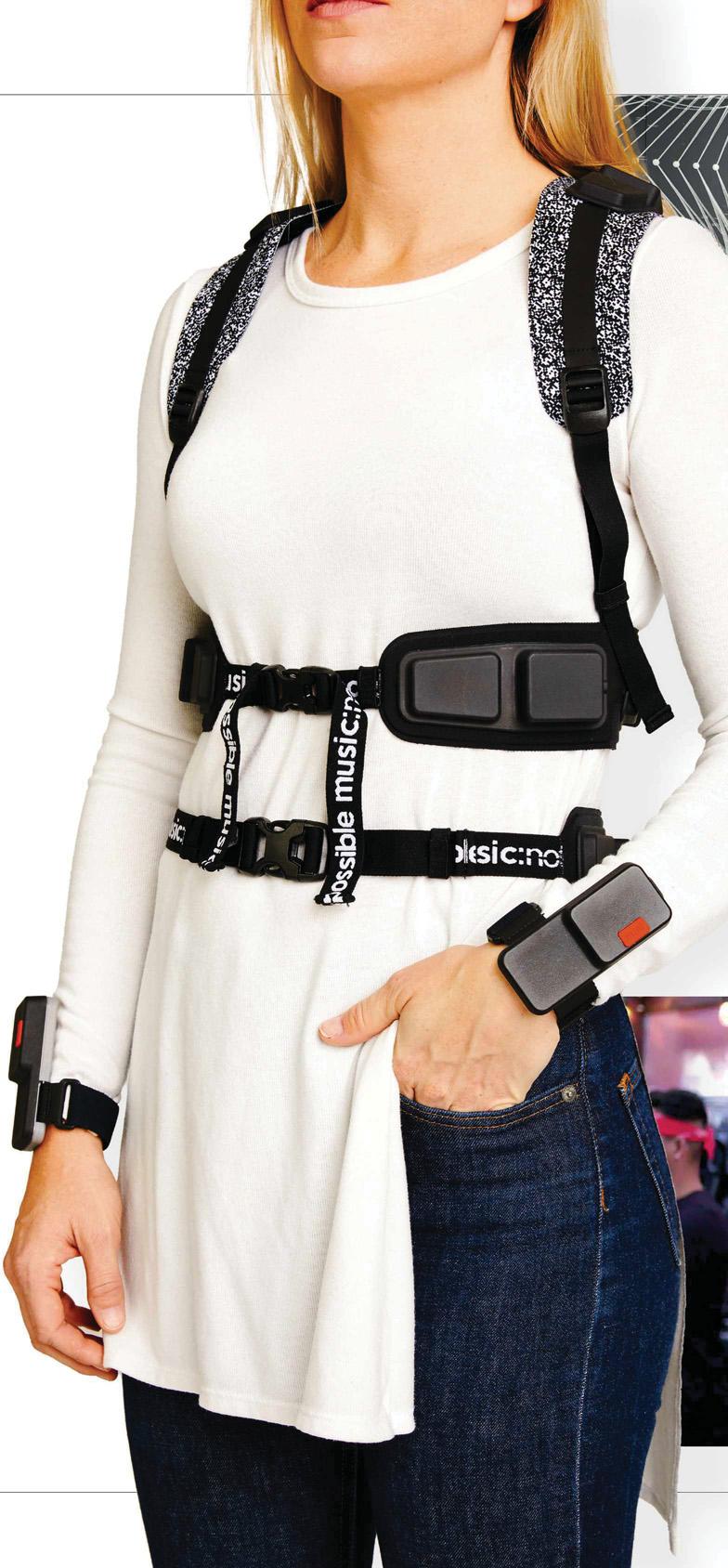These vibrating vests bring music to life for deaf gig-goers
BBC Science Focus
|November 2023
Haptic tech is making music accessible to people with impaired hearing
-

There’s a long history of deaf people going to concerts and attending gigs using items such as inflated balloons or pipes to feel the vibrations of the live performance.
In spite of this, there remains a belief that anyone who is deaf is unable to enjoy live music. But while a deaf person may not be able to hear the sound of the music, they can feel it through the vibrations produced by the powerful speakers being used, or even the instruments themselves if they’re close enough.
The US tech company Not Impossible Labs has seized on this concept and, in collaboration with musicians, venues, and production companies, built on it to create a haptic vest that makes these vibrations more accessible to both deaf and hearing music lovers.
GETTING SUITED UP
"Nothing is impossible forever," boasts the home page of notimpossible.com proudly in large font. A bold claim, but one that matches the unique nature of the products the company is working on.
Led by founder Mick Ebeling, Not Impossible Labs is built around innovation that provides accessibility where it wasn't previously available. While there's a lot of development occurring in the world of accessibility tech right now, Not Impossible Labs takes an unconventional route.
Whether it's helping blind skateboarders ride via echolocation; creating navigational 'super-hero' suits for a deaf and partially blind children, or something as simple as text messaging service that helps local people going hungry find food, Not Impossible has learned to think outside the box.
This story is from the November 2023 edition of BBC Science Focus.
Subscribe to Magzter GOLD to access thousands of curated premium stories, and 10,000+ magazines and newspapers.
Already a subscriber? Sign In
MORE STORIES FROM BBC Science Focus

BBC Science Focus
HOW UNLIKELY IS OUR UNIVERSE?
Our understanding of the Universe has revealed that its existence, and indeed our own, relies on a particular set of rules.
1 mins
December 2025

BBC Science Focus
DOES YOUR NAME AFFECT YOUR PERSONALITY?
Research is revealing that nominative determinism isn't as easy to dismiss as you might think
5 mins
December 2025

BBC Science Focus
HOW DIFFICULT WOULD IT BE TO FLY THROUGH THE ASTEROID BELT?
In the 1980 film Star Wars: The Empire Strikes Back, Han Solo and friends try to escape pursuing imperial forces by flying through an asteroid field. Droid C-3PO remarks, \"the odds of successfully navigating an asteroid field is approximately 3,720 to 1\". The scene depicts a chaotic, dense field of rocks swirling and spinning through space. This scenario has been played out many times in the cinema.
1 min
December 2025

BBC Science Focus
HOW CAN I BE MORE PERSUASIVE?
Most of us like to think we're rational people. If someone shows us evidence that we're wrong, we'll change our minds, right? Well, not necessarily, because it's not always that simple. Being wrong feels uncomfortable and sometimes threatening. That's why changing someone's mind is often much harder than it seems.
2 mins
December 2025

BBC Science Focus
This bizarre optical illusion could teach us how animals think
By seeing which animals fall for a classic visual trick, scientists are uncovering how different brains make sense of the world
1 mins
December 2025

BBC Science Focus
LIFE AT THE PARTY
The secret that keeps the superagers so sprightly could be socialising
3 mins
December 2025

BBC Science Focus
AIN'T NO MOUNTAIN HIGH ENOUGH
Could an exoskeleton help you scale every peak with ease? Ezzy Pearson straps on some cyborg enhancements to find out
5 mins
December 2025

BBC Science Focus
A slice across the sky
The green flash slicing through the skies in this shot is a fireball.
1 min
December 2025

BBC Science Focus
TB is surging. Should we be worried?
Cases of the world's deadliest infection are climbing in the UK and US. Why is tuberculosis returning and how do we fight back?
4 mins
December 2025

BBC Science Focus
I survived the worst fire in the history of space exploration and had to keep it a secret
Astronaut Jerry Linenger opens up about one of the worst accidents in space, and the cover-up that followed
1 mins
December 2025
Translate
Change font size

